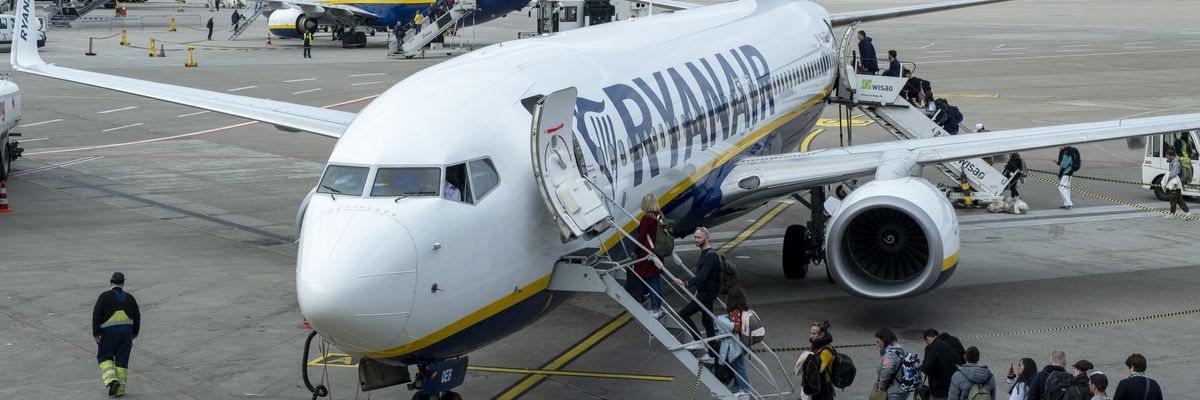A study released Thursday by Greenpeace found that the policy decisions of European governments have made flying a significantly cheaper option than traveling by train, even though the former is far worse for the climate than the latter.
For its analysis, Greenpeace Central and Eastern Europe compared air and rail fares for nine different days on 112 European travel routes.
"In the majority (79 out of 112) of routes analyzed, flights are less expensive than rail," the group noted in its new study. "Rail trips are on average twice as expensive as flights, despite the fact that the overall climate impact of flying can be over 80 times worse than taking a train."
"Why would anyone take the train from London to Barcelona and pay up to €384 when air tickets are available for the ridiculously low price of €12.99?" the group asked. (That's roughly $427 for a rail trip versus $14 to fly.)
Greenpeace attributed the often substantial differences in price to "unfair tax" policies that "favor air travel over rail." The group pointed out that "while airlines pay neither kerosene tax nor [a value-added tax] on international flights and benefit from subsidies paid with taxpayers' money, railways have to pay energy taxes, VAT, and high rail tolls in most countries."
"For the planet and people's sake, politicians must act to turn this situation around."
Lorelei Limousin, a senior climate campaigner with Greenpeace E.U., said Thursday that "airlines benefit from outrageous fiscal advantages."
"Planes pollute far more than trains, so why are people being encouraged to fly?" Limousin continued. "Low-cost airlines, in particular, have exploited every loophole and trick in the book. €10 [$11] airline tickets are only possible because others, like workers and taxpayers, pay the true cost. For the planet and people's sake, politicians must act to turn this situation around and make taking the train the more affordable option, or else we're only going to see more and more heatwaves like the one currently wreaking total havoc in Spain, Italy, Greece, and elsewhere."
Flying has been the fastest-growing source of transport emissions in the E.U. in recent years, and Greenpeace argued that European governments and institutions are effectively subsidizing the aviation industry's planet-warming emissions "through giveaways to airlines and airports" while simultaneously "closing down railway stations and lines."
Low-cost airlines in particular have benefited from government subsidies and less regulation. Greenpeace's analysis shows that "incentives for new routes from an airport are mainly designed for low-cost carriers, which are typically flying to small airports near large airports, which are considered new destinations (Paris-Beauvais, Frankfurt-Hahn…)."
"Thanks to the outrageous subsidies that airlines benefit from, they can offer unreasonably low prices—low-cost airlines are at the forefront with their aggressive pricing strategies," Greenpeace said. "But these cheap tickets come at a high cost to the planet and its inhabitants, including their employees, airport neighbors, customers, people affected by extreme weather events."
To promote less polluting travel, Greenpeace urged European national governments to "introduce climate tickets, affordable and simple long-term tickets valid on all means of public transport in a country or a defined region."
"Together with the E.U. institutions, they should also cooperate for the implementation of a cross-border climate ticket," the group said in a statement. "Windfall profit taxes, the phaseout of airline subsidies, and a fair taxation system based on CO2 emissions would make revenues available for funding climate tickets while improving public transport networks."
